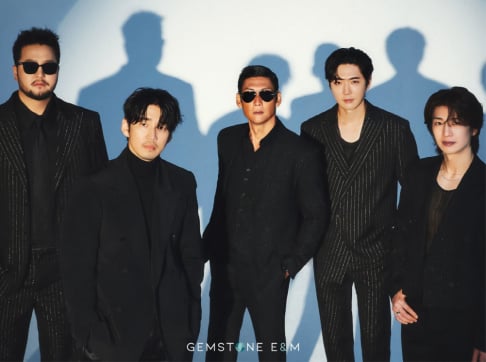
A recent incident in Siji-dong, Suseong-gu, Daegu, captured the attention of online communities such as Ppomppu. Photos circulating on the internet showed a young woman walking down the street with her bare chest exposed.
The image depicted a short-haired woman strolling leisurely, wearing shorts and carrying her shirt in her left hand. It was evident that she wasn't fleeing from a sexual crime or being pursued as she leisurely walked down the street. Netizens amusingly speculated about how the woman coped with the scorching heat of Daegu. Daegu is renowned for its hot climate in South Korea.

Exposing one's body to an extent that defies societal norms can result in punishment. Such exposure in a public place falls under either the crime of overexposure, as defined by the Punishment of Misdemeanor Act, or the crime of obscene performance, as outlined in the Criminal Act.
The severity of punishment varies considerably. Overexposure is typically punishable by a fine of up to 100,000 won, while public obscenity is considered a felony and carries a maximum prison sentence of one year.
However, regulations surrounding overexposure are not as straightforward as they may seem. Wearing a bathing suit at a water park, where it is considered normal attire, is acceptable. Yet, parading around in a bathing suit on the street can lead to punishment for overexposure.
Instances from the past serve as examples. In Gangnam, Seoul, a man driving a motorcycle without a shirt and a woman riding with him in a bikini faced charges of overexposure last year.

The issue lies in the existence of exceptions. In 2018, a women's group staged a topless street protest in Gangnam. The police dismissed the charges, stating that it did not cause significant discomfort. Conversely, the Changwon District Court fined a man who entered a coffee shop wearing shorts that exposed his buttocks in April of the previous year.
The overexposure regulation was established in the 1970s to regulate the length of miniskirts. The 2013 revision allowed for fines of 50,000 KRW (38.36 USD), but it excluded see-through clothing from the sanctions. In 2016, the Constitutional Court ruled the regulation unconstitutional due to ambiguous provisions. The following year, in 2017, the regulations were clarified as the "exposure of major parts such as genitals and buttocks."
Public obscenity refers to committing an obscene act in public. Due to its severe penalties, applying the charge of public obscenity is challenging. Convictions for this crime can result in imprisonment for up to one year, fines of up to 5 million KRW, property confiscation, or minor fines.
In 2004, the Supreme Court ruled that exposing one's buttocks after a fight, intended solely to shame or discomfort another person, did not qualify as an obscene act under Article 245 of the Criminal Act. The court stated that for an act to be deemed obscene, it must not only cause shame or discomfort but also stimulate the sexual desire of ordinary individuals.
 SHARE
SHARE














































Squirreltoo (Banned)9,064 pts Wednesday, July 5, 2023 9Why did they blur her back, does she have another pair at the rear 😂🤣
9 more replies